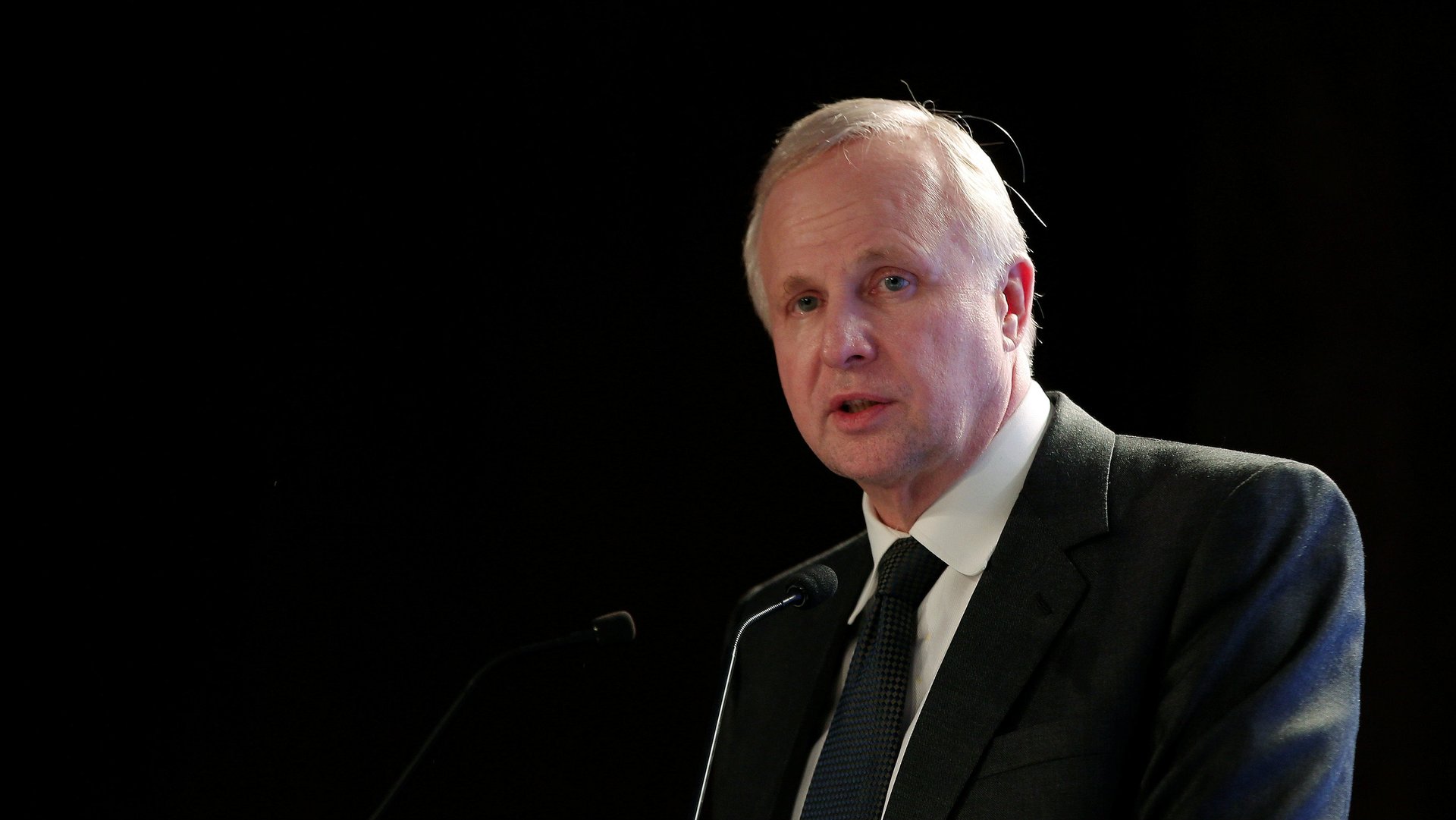BP says oil at $80 a barrel is “unhealthy for the world”
“The oil prices in the world are too high and it’s unhealthy for the world,” said Bob Dudley, the chief executive officer of British oil-and-gas giant BP.


“The oil prices in the world are too high and it’s unhealthy for the world,” said Bob Dudley, the chief executive officer of British oil-and-gas giant BP.
Some emerging market economies such as South Africa, India, and Turkey were suffering from their highest-ever prices of gasoline because the market price of oil—which is traded in US dollars—has been rising while their currencies depreciated rapidly, Dudley said. “There’s a healthy price for oil and energy and I believe that balances producing countries and consuming countries,” he added. “In my mind, it’s somewhere between $50 and $65 a barrel. The world can live with this.”
The price of Brent crude, the European benchmark for oil, has increased by nearly 20% this year. Earlier this month, it topped $86 a barrel. Economic and geopolitical tensions, such as the US sanctions against Iran and Venezuela’s economic collapse, are among the reasons for the appreciation. It has prompted analysts to speculate that oil prices could return to $100 a barrel for the first time since 2014 (paywall).
Dudley was speaking yesterday (Oct. 18) at the One Young World summit in The Hague, a gathering of nearly 2,000 young people from all over the world who are working to drive social change, such as ending sexual violence, improving access to education, and holding governments accountable for human rights abuses. Execs from BP and Shell are here to speak about how they planned to increase access to energy.
In a Q&A session with attendees, Dudley said that oil prices were “artificially high” thanks to Venezuela “defying economic gravity” and the Iran sanctions. If these forces retreat, and the oil price is determined by fundamental measures of supply and demand, then the price should return to between $60 and $65 a barrel, Dudley said. But right now, he said that the Iran sanctions were affecting everything.
On the sidelines of the conference, Dudley added that BP wasn’t considering being part of the special purpose vehicle that the European Union, China, and Russia are setting up to circumvent US sanctions on Iran. The arrangement would allow payments with Iran to avoid touching the US financial system. “We aren’t going to try [it],” Dudley said. “I think it’s full of risk.”
At the summit, Dudley spoke mostly about the energy transition that was required to meet a low-carbon future, less than two weeks after a major UN report said there was only 12 years to avoid a climate-change catastrophe. Dudley is currently the chair of the Oil and Gas Climate Initiative, a collection of oil companies that are responding to climate change.
Dudley told the young people at the summit that the most important thing was to squeeze coal out of mix and replace it with natural gas. Coal still makes up about a third of the world’s energy supply. Natural gas emits far less carbon emissions but produces methane, a greenhouse gas. BP is working to find the right technology to reduce methane leaks. He also said fracking, a process that uses high pressure water and sand to extract gas from shale rock, has “been turned into the myth of the monster beneath.” After a seven-year hiatus, fracking has restarted in the UK amid local protests.
Dudley argued that there was still so much coal usage in the world because of government policy and economics. Governments need to put a price on carbon, he said, especially because renewable energy “can’t do it alone” when it comes to reducing emissions. “Even optimistic projections only see renewables making up around one third of the energy mix by 2040,” he said.
That means a combination of oil, natural gas, and renewables will feature in the future energy mix. Dudley said he expected oil demand to peak in 2042. “But when it does peak, it’s a long plateau,” he added. Technology will be the key to cutting carbon emissions down to zero at that point, and not just relying on renewable energy, he added.